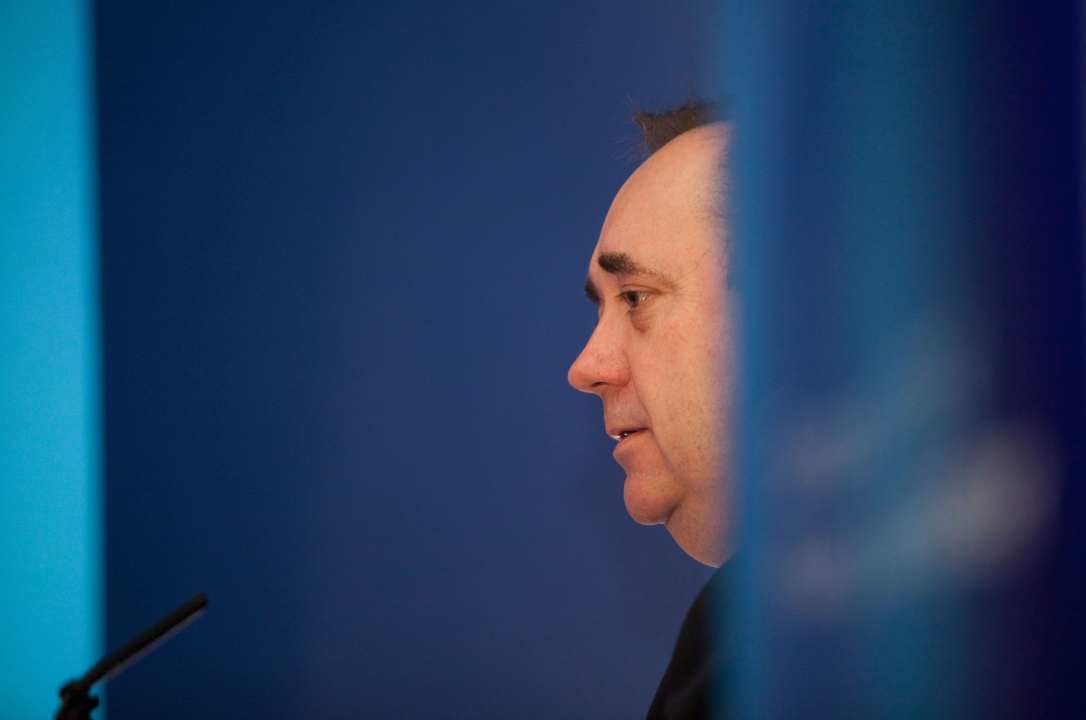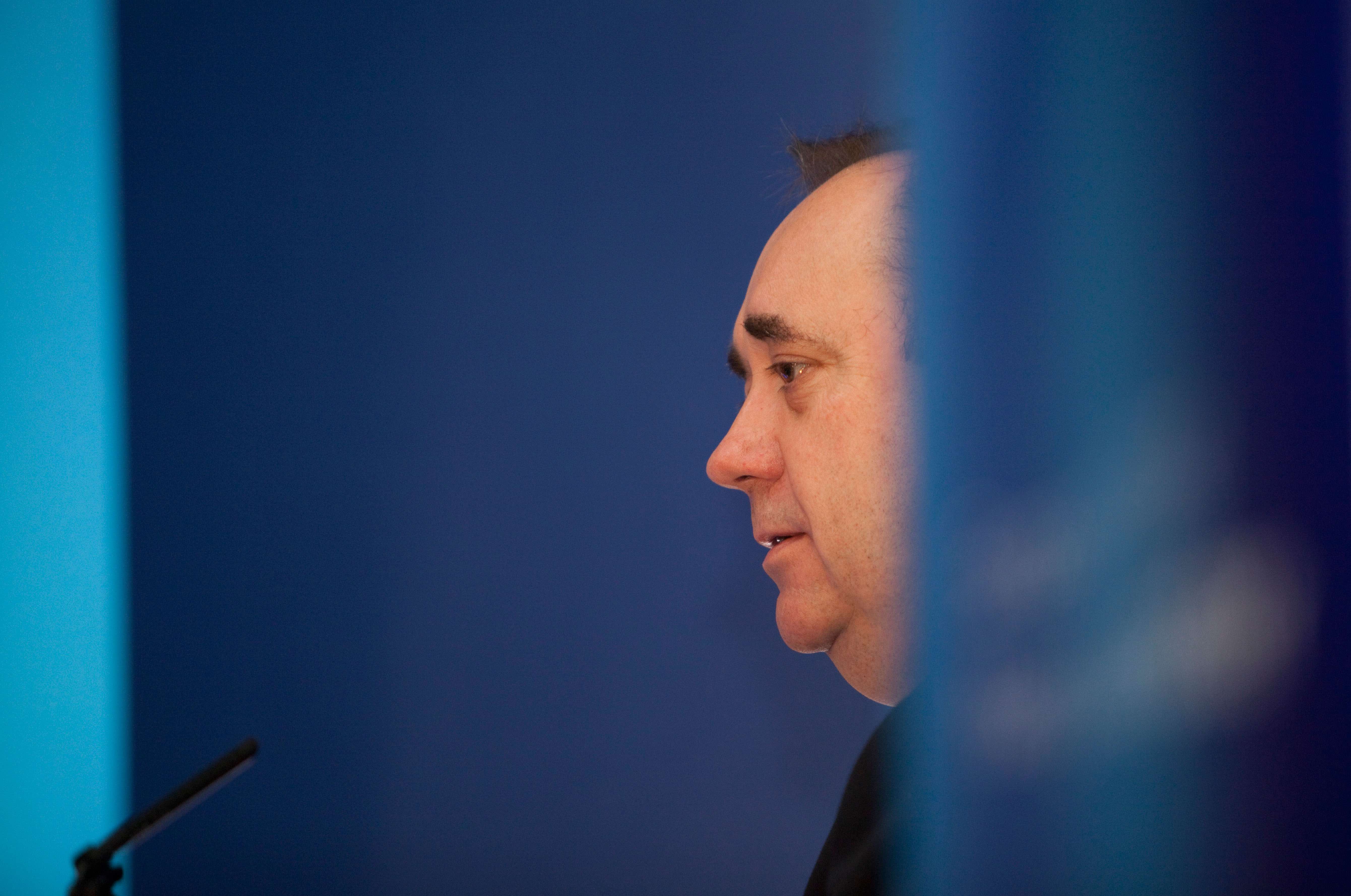Only six weeks ago the Scottish National Party seemed unchallengeable. Its leader, Nicola Sturgeon dominated Scottish politics at every level, was fêted by the metropolitan liberal elite and feared by Tory ministers in WhatsApp messages. Now she’s history, her party is in chaos and her key lieutenants including her husband, chief executive Peter Murrell, have fallen on their swords.
One of Europe’s most successful political parties, which until recently threatened to break up Britain, has now broken itself in the most spectacular fashion. It’s hard to think of anything outside political fiction that equates to the self-inflicted misfortune that has engulfed the SNP since Sturgeon resigned, out of the blue, on Wednesday 15 February.
Sturgeon’s deputy, John Swinney, followed her out the door. Her closest adviser, Liz Lloyd, resigned last week, having been criticised for assisting the campaign of the leadership favourite, Humza Yousaf. The SNP head of communications, respected former newspaper editor Murray Foote, departed after he had quoted membership figures supplied by party officials which turned out to be untrue. Finally, the SNP chief executive, Peter Murrell, Sturgeon’s husband and a towering figure in the party for over 20 years, threw in the towel at the weekend rather than face an expected confidence vote from the party NEC.
It has been as comprehensive a clear-out as in any political coup. The party is traumatised. Allegations of vote rigging and jiggery pokery by SNP HQ are rife. Leadership candidates have been at each other’s throats in the contest to replace Sturgeon, and the very credibility of the race has come into serious doubt.
The ultimate beneficiary of the chaos – or at least the figure quietly gloating on the sidelines – is the former first minister and Sturgeon’s bête noire: one Alex Salmond.
What is not in doubt is that the ultimate beneficiary of the chaos – or at least the figure quietly gloating on the sidelines – is the former first minister and Sturgeon’s bête noire: one Alex Salmond. Senior figures in the Scottish government and the SNP accused him of sexual misconduct. He was acquitted of the allegations but has been described as having a ‘tendency to obsess over settling old scores’. He has now finally seen off, one by one, the very people who he believes tried to drive him from public life in an alleged criminal conspiracy.
It is hard to pinpoint precisely the moment when things started to go wrong for the Scottish National Party, but as good a place as any to start is the 24 August 2018. That was when it is alleged that someone in Sturgeon’s inner circle leaked to the Daily Record the extraordinary intelligence that the former first minister of Scotland, Alex Salmond, had been accused of sexually assaulting two female civil servants. The SNP and the independence movement was shocked to the core. There was no greater hero in the nationalist pantheon than the leader who had taken the party to its first election victory in 2007 and then to a strong showing in the 2014 referendum. Thus began a chain of events that led the party into division, deceit and ultimate downfall.
In January 2019, Salmond won a ruling from the Court of Session that the Scottish government had acted ‘unlawfully’ in accusing him of sexual misconduct and awarded him £512,000 in costs. A year on, Salmond was acquitted by a High Court jury of 13 charges of attempted rape and sexual assault after a sensational trial. His accusers included senior figures in the SNP and civil servants.
In the subsequent parliamentary inquiry into the affair, Salmond in turn accused Sturgeon’s husband, party CEO Peter Murrell, of personally organising a criminal ‘conspiracy’ to ‘ruin’ his reputation and have him ‘imprisoned’. Sturgeon labelled the claims ‘absurd’. Murrell has now been driven from his role, while other members of Salmond’s alleged conspiracy – including Liz Lloyd and the permanent secretary at the time, Leslie Evans – are also history. The chief constable who was in charge of the failed Salmond prosecution, which involved over 400 interviews, was Sir Iain Livingstone. He announced his retirement a week after Sturgeon’s resignation.
The Salmond psychodrama took place in the backwash from the #MeToo storm when the sexual conduct of politicians was under unprecedented scrutiny. An off-key remark could end a political career overnight. The SNP children’s minister Mark McDonald had been forced to resign in 2017 over a couple of risqué texts sent to a female staffer. Salmond had been eyeing up McDonald’s parliamentary seat with a view to returning to active politics. In Spring 2018, he was bluntly advised by someone very close to Sturgeon that his return might not be welcomed, that he had baggage. The baggage contained allegations of sexual misconduct by civil servants.
Sturgeon weathered the parliamentary inquiry into the Salmond affair, but it was not without cost to her integrity. She became an embattled figure, increasingly reliant on the close circle of advisers who had seen her through the legal and political traumas. The party she led was now fatally divided and, in early 2021, Salmond led a block of SNP members out of the SNP altogether and into his new Alba party.
That was when the membership of the SNP started to decline. It has since lost over 30,000 members – almost a third of its 2021 membership. The fall in members is a fact that party officials tried to conceal from the press and, more importantly, from contenders in the SNP leadership campaign. Both Kate Forbes and Ash Regan have called for an independent auditor to oversee the vote count in the leadership contest.
It was sometime between #MeToo and the turmoil of the Salmond affair that Sturgeon decided to dedicate herself to the cause of self-identification (self-ID). It was a cause which, she hoped, would show that she and Scotland were in the vanguard of progressive reform. It didn’t. Self-ID became both a legislative and public relations disaster after it was discovered that the Scottish Prison Service had been anticipating the new law by placing male-bodied trans sex offenders in women’s prisons on the basis of their declared gender.
It is not entirely clear what precipitated Sturgeon’s abrupt resignation last month, but what is not in doubt is that her troubled Gender Recognition Reform (GRR) Bill was a large part of it. Concerns about the legislation to allow 16-year-olds to change legal sex merely by declaration without any medical intervention was widespread in the party and the country. It is opposed by around two thirds of voters, though not out of hostility to transgender people who retain much public sympathy. A prominent group of feminists, led by the author JK Rowling, were vehemently opposed to self-ID on the grounds that it posed a threat to the security of women’s single sex spaces. These concerns were ultimately taken up by the UK government, which in January 2023 blocked the GRR Bill under Section 35 of the Scotland Act, on the grounds that it conflicted with women’s protections under the 2010 UK Equality Act. Sturgeon claimed this was a ‘full frontal assault on devolution’.
Now, all bets are off. The SNP appears to have committed political hara kiri.
Many SNP members would have preferred their leader to concentrate less on transgender rights and more on Scotland’s right to leave the United Kingdom. Over the last five years, SNP members have become increasingly disillusioned with Sturgeon’s repeated promises that never materialised, to secure another referendum on independence. This frustration reached critical mass last year after Sturgeon’s failure to win the support of the UK Supreme Court to hold her ‘advisory’ referendum on independence. Sturgeon then called for the 2024 general election to be turned into a ‘de facto’ referendum on independence. The idea was widely criticised as undemocratic and a reckless gamble. What if the SNP failed to win a majority of votes, something it has never achieved in any general election? Would that be the end of the independence dream?
It certainly ended the dream of Sturgeon leading her country to independence. In February, she decided enough was enough and resigned without warning. It was a devastating blow to the party. SNP HQ, under Peter Murrell’s tutelage, tried inelegantly to bounce the party into backing the health secretary and so-called ‘continuity candidate’, Humza Yousaf. His record in office was promptly savaged by finance secretary Kate Forbes in the first televised leaders’ debate.
Before last month, many even in the UK Conservative party were beginning to think that independence for Scotland, if not an inevitability, was something that the UK would have to take more seriously if the SNP continued to win huge majorities in successive elections. Now, all bets are off. The SNP appears to have committed political hara kiri.
The next leader of the SNP – and it’s very much looking like it’ll be 32-year-old Christian conservative Kate Forbes – will preside over a wrecked party with a collapsing membership, dwindling finances and none of the professional cadres of the Sturgeon era.
And smiling over the wreckage is a portly figure who is profoundly unpopular in England in a way Sturgeon never was; the last man standing: Alex Salmond.








Comments